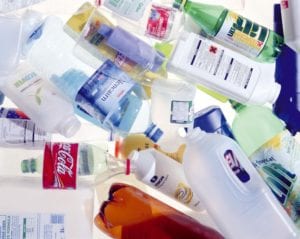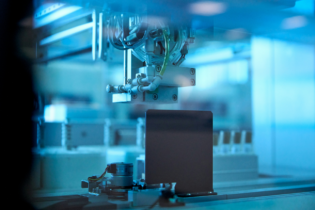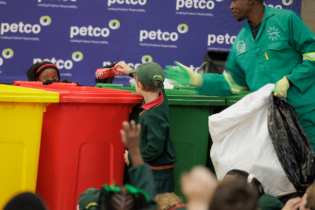A paper and plastic packaging manufacturer plans to divert 29 000 tonnes of plastic bottles a year from landfill by building a R350 million state-of-the-art polyethylene terephthalate (PET) recycling plant.
The new plant will process approximately 29 000 tonnes of PET plastic bottles a year, generating 21 000 tonnes of new raw material. This will amount to a saving of about 180 000 m3 of landfill space each year. Bruce Strong, chief executive officer of Mpact, says the entry into plastic recycling is an exciting opportunity. “Mpact is starting a new venture that will add an important dimension to our business. It is an excellent fit with our strategy and will enhance our position as a leading beneficiator of recyclables in South Africa.” He anticipates that 1 000 jobs will be created directly and indirectly to operate the new plant and collect the PET bottles needed as input material. Strong says the new business will supply customers with a reliable and high-quality source of raw material while providing waste collectors with a committed buyer of used plastic bottles. Further, the benefits to the environment are substantial. Mpact Polymers The PET recycling plant will be part of Mpact Polymers, a newly formed operating entity within Mpact Limited. It will be built in Wadeville, Germiston, close to one of the company’s existing Plastics manufacturing facilities. The Industrial Development Corporation (IDC) has provided loan funding of R210 million in debt and R30 million for its equity stake of 21% in Mpact Polymers. Hilton Lazarus, head of chemicals and allied industries at the IDC, says, “The plastics industry is a strategic focus area for the IDC. This project is a good fit with the IDC’s chemicals strategy in terms of downstream processing of chemicals, job creation and industrial development.” Strong expects the new plant to be commissioned during the second half of 2015. He says that building the Mpact Polymers plant and making a carefully planned entry into plastics recycling is a good investment.Plan development Development of the plan for PET recycling was done in close collaboration with key customers to ensure that the processed recycled material meets international standards. Mpact worked with Coca-Cola, its bottling partner Amalgamated Beverage Industries, SABMiller as well as with industry body PETCO to bring the project to fruition. “Our people visited a number of plastics recycling operations around the world while developing Mpact’s plan to enter this business. The project team’s research included visits to Mexico, France, Germany, Bangladesh and Peru. Plants using different technology and facing particular challenges were examined. We drew important learnings about what is needed to establish a viable and sustainable plastics recycling business,” says Strong. In developing the project, the company has also been supported by PETCO, the Ekurhuleni Metro, the IDC and the Department of Trade and Industry (DTI). Strong says, “The IDC and the DTI both have a significant interest in supporting industrial development and job creation and are willing to share in managing the risks of the project. The IDC is also an experienced funder of projects of this nature and we are pleased that the corporation has agreed to take up a stake of 21% in Mpact Polymers.” “While the economy is experiencing a variety of challenges, we believe it remains important to approach the future with the optimism and drive needed to lift the economy. Investment in this new plant is founded on both this optimism and a solid business case,” he says. Bolstering job creation Strong expects Mpact Polymers’ increased demand for PET bottles to bolster job creation in the recycling industry. “The South African market currently uses about 124 000 tonnes of PET bottles a year. Some 59 700 tonnes of PET was collected for recycling in 2013. So, our initial objective to collect and process 29 000 tonnes a year indicates a clear opportunity to expand PET recycling,” he explains.







